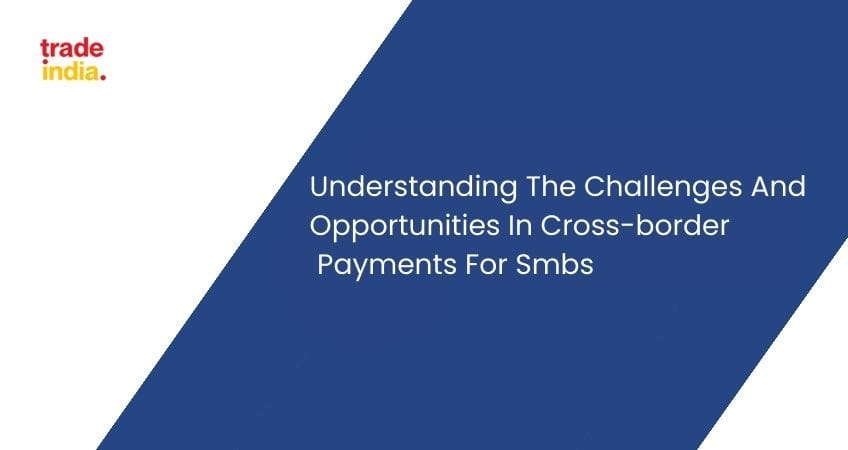Understanding The Challenges And Opportunities In Cross-border Payments For SMBs

Cross-border payments have become crucial for small and medium-sized businesses (SMBs) as they can access a wide range of skills and vendors in the digital economy. To successfully make foreign payments, SMBs need to be aware of the challenges involved in the process. They can also explore various options to accelerate business growth and streamline cross-border payments.
Challenges In Cross-border Payments For Exporters
1. Currency Conversion
Converting currencies is a major challenge for SMBs in international payments. The exchange rate can fluctuate significantly within a short period, leading to unexpected costs and losses for SMBs. Our latest research report shows that 66% of SMBs are hesitant to establish new connections with vendors, contractors, or freelancers that would involve cross-border payments due to high foreign exchange expenses.
2. Regulatory Compliance
Meeting regulatory compliance requirements is an important consideration for exporters when sending money internationally. Rules related to anti-money laundering and know-your-customer (KYC) standards apply to these transactions. For businesses, particularly those unfamiliar with the regulations in foreign countries, ensuring compliance can be a time-consuming and costly process. According to our latest research report, 66% of payment executives intend to use cross-border suppliers, contractors, or freelancers more frequently. However, 81% of them cite regulatory constraints as a barrier preventing them from doing so, primarily due to the requirement for cross-border payments.
3. Banking Infrastructure
Many companies are embracing global talent but still rely on traditional payment methods, such as bank transfers. According to our latest research report, 84% of payment managers prefer using bank transfers for cross-border transactions. However, there can be challenges when it comes to cross-border payments for small and medium-sized businesses (SMBs) due to differences in financial infrastructure between countries. Some nations may have less reliable banking systems or may not support the preferred payment methods of SMBs. Furthermore, payments through banks can be delayed. For example, 63% of payment executives say it takes 2-5 working days to pay freelancers or foreign suppliers, and 17% say it takes even longer. To expand their business with international talent, companies need to speed up cross-border payments to be more flexible and reliable. This is acknowledged by 89% of payment executives.
4. Opportunities Abound
Embracing cross-border payments can bring numerous advantages to businesses, including accessing new markets, driving growth, and finding cost savings. However, navigating the legal framework, managing currency conversion, ensuring payment security, and dealing with banking infrastructure can be challenging. To address these difficulties, companies can opt for a service like Payoneer.
Payoneer helps businesses manage funds in different currencies and sends payments to various countries. It supports SMBs and independent contractors in receiving payments from clients, platforms, and marketplaces. Customers can hold funds and receive payments in popular currencies. This is especially beneficial for freelancers and SMBs in emerging markets. They can use MasterCard to make payments or withdraw funds to their bank accounts in any currency.
